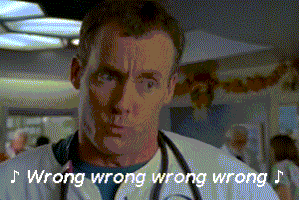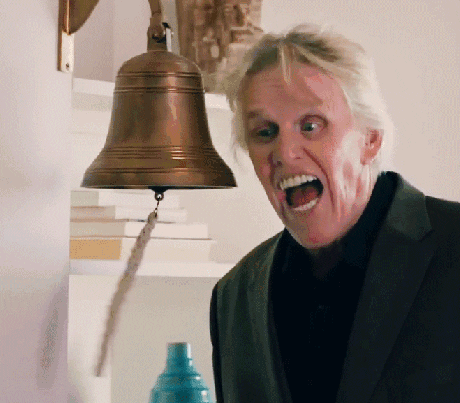My mom is a big believer in trying things. She never wanted her kids sitting still, so when we weren’t being unceremoniously pushed outside to hang out with neighbors, we were being bundled off to lessons—orchestra, dance, who knows what else. Even now, I still flap-step my socked feet whenever I’m bored.
But here’s the thing—I haven’t picked up a bow since college and my actual tap shoes have probably been rusting away in a landfill since half-past-childhood.
I quit all of it, but not because I hated doing these things. Somewhere along the way, I simply realized that the things I was doing didn’t love me back. Frankly, I sucked. And I came to understand something: you’re not going to get rewarded just for showing up and participating as an adult, especially when your mediocrity affects more than yourself.

Source: America’s Funniest Home Videos
So if I can apply that logic to my hobbies, why then, can’t doctors consider the same when it comes to their work?
In a thought-provoking New Yorker piece, surgeon Atul Gawande looks at cystic fibrosis (CF) programs to explore how medicinal mediocrity is allowed to flourish in American healthcare.
What he discovers is actually… pretty disturbing.
Turns out, if you’re expecting all hospitals—or even most hospitals—to give you top-notch care, you’ll be horribly mistaken. Hospital programs and treatment centers fall on a bell curve, meaning there are a couple of institutions at the tippity-top, a number of them in the pits, and a whole heck of a lot festering in pure averageness.
And this includes programs for life-threatening rare diseases. Cystic fibrosis—a genetic disease largely affecting the lungs—used to end in early fatality for those diagnosed. Now, life expectancy has sky-rocketed into adulthood, but that expectancy is largely dependent on the hospital controlling your care.
Despite this, the majority of doctors and hospitals refuse to be transparent about where they fall on the bell curve. A few individuals and organizations–including the Cystic Fibrosis Foundation–are attempting to change this, but it’s slow going.
Hospitals aren’t just cautious; doctors have actually become outraged when presented with the idea that they may be held openly accountable to their medicinal performance.

You know what that sounds like to me? It sounds like doctors putting their pride before your life.
As long as doctors and hospitals can hide in obscurity, there is no incentive for them to push themselves. We can’t become informed patients and they can’t become informed healthcare providers.
And those in the pits never have a reason to say, hey, let me retire that stethoscope the way a young girl might retire her tap shoes.
So long as that remains the case in healthcare, the bell will toll a lot earlier for some patients than it will for others.

For a more in-depth look at this issues, read the entire article on the New Yorker. It’s long, but it’s pretty amazing. You can also find the CF institutions Gawande visits here and here. Check it all out, and once you do, come back here and weigh-in.






